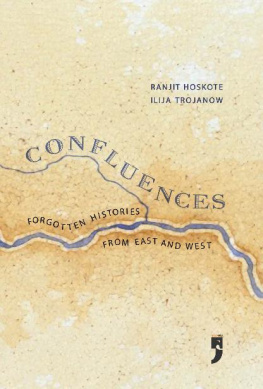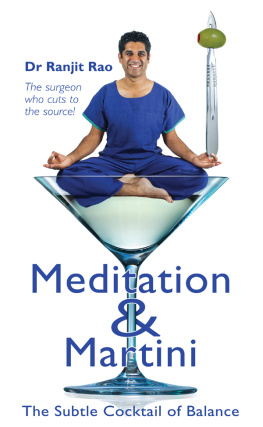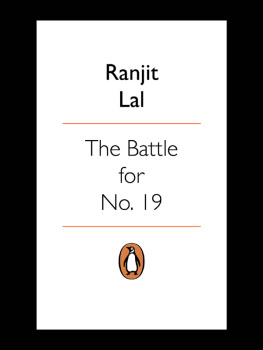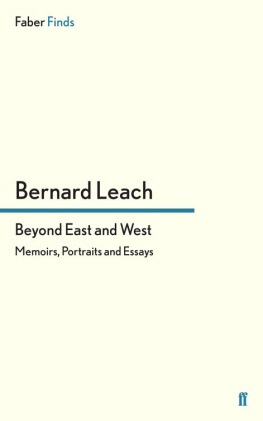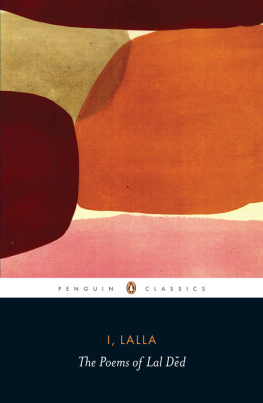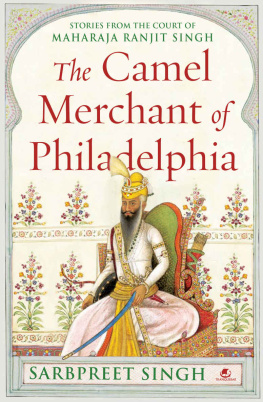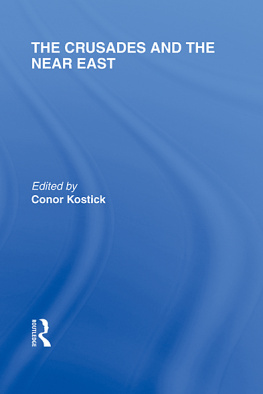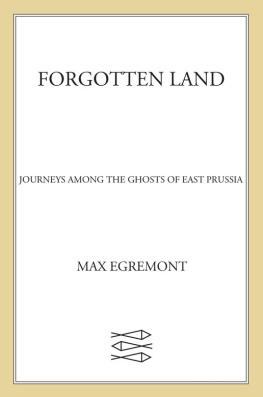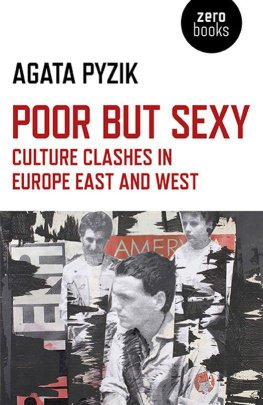CONFLUENCES
Praise for Confluences
the book that impressed me most this year [2012]a brilliant analysis of connected histories and how different cultures, through confluences, connect us.
Sitaram Yechury, Outlook
This is an enlightening and challenging book that could mean many things to different people as the title itself suggestsa welcome read for those coping with multiple identities in a changing pluralist society.
Rudolf C. Heredia, Economic and Political Weekly
a scintillating new work. Its synthesis of narrative and historical detail is as accessible as it is far-reaching.
Matt Daniels, Mint Lounge
Hoskote and Trojanow write fluently and with passion. Their impressive trek across the centuries highlights how all cultures have borrowed from each other, and how our current modernity is by no means a European invention.
Tabish Khair, Mint Lounge

YODA PRESS
79,Gulmohar Enclave New Delhi 110 049 www.yodapress.co.in
Copyright Ilija Trojanow and Ranjit Hoskot 2012
The moral rights of the author have been asserted Database right YODA PRESS (maker)
First published in German in 2007 as Kampfabsagee (Munich: Blessing Verlag) First published in English in 2012 by YODA PRESS
Second impression 2013
All rights reserved. No part of this publication may be reproduced, stored in a retrieval system, or transmitted, in any form or by any means, without the prior permission in writing of YODA PRESS, or as expressly permitted by law, or under terms agreed with the appropriate reprographics rights organisations. Enquiries concerning reproduction outside the scope of the above should be sent to YODA PRESS at the address above.
You must not circulate this book in any other binding or cover and you must impose this same condition on any acquirer.
ISBN 978-81-906186-7-0
For sale only in India, Pakistan, Bangladesh, Myanmar, Bhutan, Nepal and Sri Lanka
Editors in-charge: Arpita Das, Nishtha Vadehra Typeset in Sabon 10.5/14
By Jojy Philip, New Delhi 110 015
Printed at Saurabh Printers Pvt Ltd Published by Arpita Das for YODA PRESS
To the Inhabitants of the In-between
... we should remember that it is the interthe cutting edge of translation and negotiation, the in-between spacethat carries the burden of the meaning of culture.
Homi K. Bhabha The Location of Culture (1994)
Contents
DJ Boccaccio and the Great
14th Century Remix 56
Conflict and Conflfluence 108
vii i Contents
ONFLUENCE AND
THE INDUTVA
AND
T HE N ONSENSE M ANTRAS OF O UR TT 187
I
No Confluence, No Culture!
Every Saturday and Sunday, all over Europe, people from different walks of life come together to support and celebrate their very own. They flock into the arenas, wearing the shirts of their heroes, eager to scream and shout for the better part of two hours. What do they sing in moments of joy and ecstasy? Which slogan unites them all, whether they are comfortably seated in Munich or quivering on their feet in Manchester? Ol! Rhythmically repeated in a distinct, well-known cascade: ol ol ol ol. Probably most fans link this slogan with Spain. They associate it with toreros or with Don Juan. But how many of the hooligans that whip themselves into frenzy with unrelenting ols realise that they are actually repeating the Arab word for God? Time and again, every Saturday and Sunday, the soccer stadiums in Europe resonate with shouts of Allah!
That cry gives the lie to those ideologues of purity who believe that societies can only function when they boast of a homogeneous, home-grown culture that has developed from the core of a certain nation: one tradition, one religion, one people. They define difference as static and unbridgeable. They are oblivious to the concealed entanglements of ancestry and the local variations of transcontinental narratives. Theirs is a flawed conviction, for it is blind to history. Take for example the claim that the West is distinguished by its enlightened Judaeo-Christian tradition (a paradox in itself, given the sharp differences between the two components of this tradition). Conventional wisdom has it that the greatness of modern Europe was established during the Renaissance, a period of enormous cultural flowering that was inspired by the idea of the individual and the rediscovery of Ancient Greece. The Renaissance is the colossal achievement of European genius and the foundation of contemporary European identity. The philosophical upheavals that led to rationality and the Enlightenment, to the division of Church and State, to Human Rights and the Idea of Freedom were provoked by the great minds of this epoch. This established narrative is neat and thoroughly lopsided.
In Chapter II ( The Making of Europe) we will show that core Western values, technologies and cultural expressions were decisively formed in the cradle of the confluential Mediterranean between the 9th and the 15th centuries, with the principalities of al-Andalus, the elegantly Arabised Norman kingdom of Sicily and later on the mercantile centres of the Italian city-states, with Venice as Europes most cosmopolitan capital, as its key points. Here accounting and cartography, philosophy and medicine, poetry and logic all flowered under both Islamic and Christian patronage. This vibrant culture of debate embraced scholars working in Granada, Baghdad, Palermo, Damascus, Bologna, Paris, Venice and Cairo. Ibn Sina (Avicenna), for example, produced an Aristotelian defence of independent inquiry and scientific truth in the 11th century. Al-Ghazali (Algazel) opposed him vehemently, claiming that the tolerant God of the philosophers could not be the God of Islam. Ibn Rushd (Averroes) countered by demonstrating Al-Ghazalis logical incoherence, upheld the autonomy of critical rational thought, and refuted the notion that faith had a monopoly on truth. Averroes became a hero and guide to many Parisian scholars, including early intellectual giants like Pierre Abelard, Roger Bacon and Albertus Magnus. They annotated his Aristotelian commentaries and deployed his ideas against a Church that was suspicious of free thought and ruthless in its suppression of heresy.
From a long-term perspective, it is clear that Arab Muslim thinkers inspired the eventual victory of critical rationalism over fundamentalist bigotry. Ibn Sina and Ibn Rushd, together with Aristotle and Plato, gave independent minds in Christendom the intellectual equipment and moral inspiration to oppose the suffocating orthodoxy of the Church, a liberating movement that led to the Renaissance.
We will trace a number of such cultural confluences that manifested themselves sometimes in an adaptation of form, sometimes in a retelling of content and sometimes in both, as shown by the example of the Sanskrit story-collection Panchatantra , which travelled through the Thousand and One Nights and Petrus Alfonsis Disciplina Clericalis to Chaucers Canterbury Tales and Boccaccios Decameron , or by the incarnation of the Arab muwashshaha in the songs of the Troubadours, the very beginning of modern Western poetry. These are just two of the many examples that we will present to prove that the values and cultural achievements of the West are the result of awakenings and rebellions made possible by what we today regard as non-European sources.
L
The greatest rivers bear the most misleading names. The canon of geography dictates that the source furthest away from the mouth is the rivers point of origin, and the entire watercourse takes on a single name. But no great river would reach the ocean without being fed by tributaries: the brooks, streams and rivulets that join its flow, often bringing with them more water, alluvium, minerals or fish than the source stream. By the time the great river has reached the ocean, the source is no more than a faint memory; the flow has been defined by a series of conflfluences along the way. But the rivers official name conceals the truth of its composition; while the nametag passes into legend and lexicon, the ancestry of confluences becomes invisible. To understand the true identity of the river, we would have to pinpoint the occasions of confluence, examine the dynamics of addition and innovation played out at the merging of the waters.


